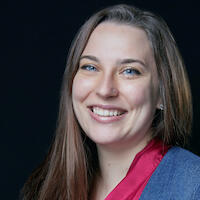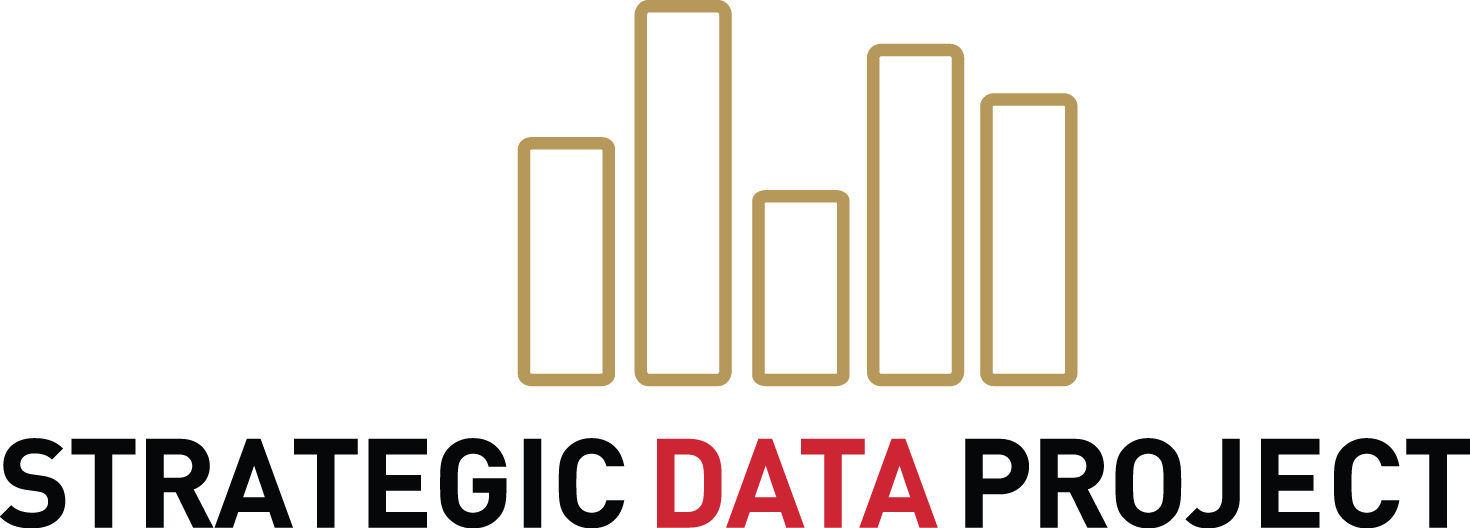 Five months into their fellowship, a pandemic upended education data as we know it.
Five months into their fellowship, a pandemic upended education data as we know it.
In October 2019, I first met the 11th cohort of Strategic Data Project Fellows in Cambridge, MA, on Harvard’s campus. We spent a few days together with the fellows’ supervisors putting pen to paper on projects the fellows could undertake and assessing their agencies’ needs, and a day building personal and professional bonds across the Fellowship. As I close this chapter with the individuals in this incredible cohort, I take a moment to pause and reflect back on the change they brought to their organizations.
Five months into their two-year fellowship, the COVID-19 pandemic struck, forcing schools to close and dedicated educators to figure out a way to preserve their core missions of learning and support to their communities. This crisis was not purely a logistical one, as these disruptions called attention to persistent inequities in both access and in outcomes. At each step, SDP Fellows were there, helping to provide equitable access to resources and distributing devices to students participating in online learning, tracking case counts in schools to bring collective data to the public, and helping students and their families locate free meals.
-----
As SDP Fellows helped their agencies rethink processes and outcomes amidst this educational disruption, several of them led work that helped their organizations keep a critical focus on important questions of equity.
How do we support school leaders of color?
In the Wake County Public School System, Elc Estrera investigated the pathway between assistant principals and the principalship. His findings call attention to the fact that it takes the district around two years longer on average to hire Black Assistant Principals to a principalship than their white peers. Moving forward, Elc is pursuing a research-practice partnership to delve more deeply into the specific leadership experiences Wake County Assistant Principals have that help them advance to the principalship. He hopes the result of this work will drive policies and practices governing current and future school leaders in the county.
How do our district employees feel about the culture?
In the Cleveland Metropolitan School District, Olivia Simuoli was tasked with analyzing the results of a district-wide survey about employee experiences and perceptions on diversity, equity and inclusion in the district. Among other findings, her analysis showed a significant disparity in who was able to respond to the survey, suggesting that staff who were Black, Hispanic, or members of another race were not fully or partially represented accurately in the data collected. Another compelling finding to be explored is that employees who identified they shared the same race as their supervisors reported higher satisfaction with the district and departmental culture. The district readministered the survey this past spring, with an eye towards more representative responses, and their Equity and Inclusion Team is preparing to address other findings, likely via district-wide interventions with managers.
In a time when schools and education systems were struggling to adapt to new processes and increased needs, fellows stepped up to help organizations and agencies across the country weather the challenges they faced.
How do we lead data work for our agencies virtually?
In Atlanta Public Schools, Elise Lenthe inherited a data team charged with sustaining a history of success and meeting the needs of the moment. But especially virtually, individuals on the team had different senses of their goals, roles, and work together. After a year of focusing on team norms, processes, and culture—including successfully onboarding new analysts virtually—Elise measurably increased her team’s satisfaction as well as their performance, which was visible in district-wide surveys of school leaders.
How do we stretch each dollar schools get?
Bri Martin wanted to help LEAs in Nevada make best use of their federal dollars. In her role within the Nevada Department of Education, Bri carefully analyzed spend down and carryover of title funds. Through this work, Bri identified a few districts carrying over significant grant funds each year. She is hopeful that this information will help the state support LEAs in funding their efforts to catch up students after the educational disruption of the past 18 months.
Education organizations and school systems partner with SDP because they want to get better at using data strategically to advance their own missions. However, fellows’ work had real implications beyond the boundaries of their organizations.
How can you learn about what you can’t see?
Arpi Karapetyan at the Cowen Institute encountered a frustrating data gap affecting her ability to identify and therefore learn from students who had encountered multiple school closings and takeovers in the city of New Orleans. In addition to conducting the archival work necessary to track school openings, takeovers and closings in the decentralized system, Arpi turnkeyed these efforts into a public database of school closings and takeovers for the community, offering a third-party solution to provide this missing data. She hopes her work empowers community advocates, journalists, and researchers to be able to ask and answer their own questions about these transitions.
What’s the best way to support English Language Learners?
Diana Serrano worked on a cross-country research partnership between her organization Education Northwest and Waltham Public schools to rigorously evaluate a two-way language immersion program for Spanish-speaking English language learners in kindergarten and first grade. She found this two-way immersion did not harm students’ reading, listening or speaking in English. However, she did find some evidence in her randomized study that the offer of instruction in Spanish had an adverse effect on students’ writing skills in English. Diana’s work adds to the growing, but still unsettled, body of research on the best instructional approaches to support English language learners.
-----
All SDP Fellows work centrally in education systems or service organizations, where they focus on organizational level change. Oftentimes, their work has a direct impact on kids. SDP Fellows in Cohort 11 meaningfully increased access to college-level work for students from Oklahoma to Massachusetts.
In 2018, only 23% of students in Epic Charter Schools were participating in a postsecondary experience—AP courses, dual enrollment, a technical certificate, or an internship or apprenticeship. Michael Flory created a department to centrally build partnerships with postsecondary institutions and employers. He also ensured teachers received incentive pay for the share of their students participating in these postsecondary opportunities. Finally, he built just-in-time data reports to help counselors intervene with students dissatisfied with their experience to find another that met their academic goals. These efforts combined to produce a 90% participation rate in postsecondary opportunities for Epic students.
At the Massachusetts Department of Elementary and Secondary education, Pierre Lucien conducted a matched comparison study to investigate the impact of participating in early college dual enrollment programs. He found that early college students earned over 5,000 college credits in 2019, for a potential collective savings of over 1 million dollars.
Early College students were also more likely than non-participating peers to complete a state recommended college-preparatory course of study, and the FAFSA. Finally, these effects were either similar or more pronounced for students who were Black, Latinx, and economically disadvantaged. Pierre’s work helped secure an additional $2.5 million dollars of funding for early college programs from the state, and to recruit additional districts to expand the early college programs into their schools.
SDP Fellows demonstrated great personal and professional resiliency, adaptability, and service orientation—embodying some of SDP’s core values.
Ben Sanoff of High Tech High and his team from the CARPE College Access Network built a series of online lessons for seniors in high school, helping guide them through key steps in the college-search and application process. At first, he thought they’d be ideal for a year of virtual instruction, but given the increased demands on students, teachers and counselors, he had to pivot. They carefully worked to right-size the content for the school year, and agilely helped schools pick the implementation strategy that could reach the most students given the unique constraints each school faced.
In Buffalo Public Schools, Ruzanna Topchyan pivoted her project entirely, from evaluating the myriad organizations providing students out-of-school supports to focusing on how the district supported teachers in preparing for remote instruction.
Amanda Salinas in Klein ISD (Texas) saw her planned data governance work kick into overdrive over the last 18 months. What began as a project to break down data siloes internally to the school system became a project to rapidly and responsibly report positive covid cases publicly, to the state, and to the local health departments.
In all cases, SDP Fellows had to dynamically assess what was possible after the educational disruptions of 2020-2021 and identify what was needed and how they could best deliver on a short timeline with limited resources, and often under a lot of pressure. Not only did they accomplish much during a difficult time, but the impact of their successes continues to reverberate.
In the San Diego County Office of Education, Shannon Coulter’s impact evaluation of differentiated assistance to low-performing schools is prompting some careful reflection on the so-far muted result of the policy. A new service team is collaborating to address his findings and their implications, starting just last month.
The systems and processes fellows have built and strengthened are on-track to be sustained, like the data governance work done by Jessica Shopoff at Learn4Life and the knowledge management work by Stevens Dormezil in the School District of Palm Beach County.
SDP Fellows have also left a roadmap for others to replicate and build off their work, like Deborah Donovan’s guide to automating data processes in large education agencies, code to replicate Amy Jiravisitcul’s analysis of what a “diverse” school looks like, and Julie McLeod's survey to evaluate the effort and impact of literacy coaches.
Reflecting back on the last two years, fellows’ work shifted in real time to address new, unexpected needs. Many became instrumental in their organizations’ responses, because of their skills in diagnosing problems and using the best information available to inform their actions. Whether their work was in response to these educational disruptions, or succeeded in spite of them, SDP Fellows helped improve processes within their organizations, created resources for the field, and increased student’s opportunity for success. The accomplishments of this year’s graduating cohort are impressive in their own right, and they are made even more so by the challenges SDP Fellows overcame to get here.
Modified from a speech by Rebecca Marshall, SDP Programs Manager
